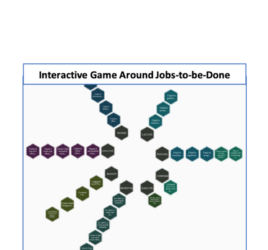
Beyond Glucose Control: Improving Diabetes Outcomes at Scale
Written by: Robert A. Vigersky, MD, Medical Director, Medtronic Diabetes & Neal Kaufman, MD, MPH, CMO Canary Health
Daily Decision-making Impacts Quality of Life for Diabetics
The day-to-day life of a person with diabetes (PWD) is always a balancing act which at any moment can turn deadly if her or his blood glucose level isn’t properly managed. However, long-term outcomes are determined from circumstances in addition to glucose control. The sum of the hundreds of decisions made and actions taken each day determine a person’s outcome, even if any one action isn’t that critical. What this often leads to is a feeling that diabetes has robbed the person of valuable time to do other things….to “have a life”.
Lowering the Burden of Self-management
Those of us supporting a PWD must lower the self-management burden. Helping the PWD focus on the things which are important to them will impact short and long-term outcomes that matter. This includes (1) supporting the acquisition of the key knowledge, attitudes, skills and behaviors; (2) implementing the right personalized technology-enabled support (e.g., blood glucose monitoring and sophisticated insulin delivery approaches); and (3) empowering people to be able to have the confidence and competence to manage their lives, their disease(s), their relationships and their emotions.
The Composite Metric Approach
Most diabetologists and educators recognize that there has been increasing enthusiasm to transition from using A1C alone, to A1C plus another metric, called a “composite metric ”. This approach would better describe what’s going on with a patient’s glucose control and overall health status. A1C, rate/severity of hypoglycemia/hyperglycemia, weight change, mood, blood pressure, fitness, complications/co-morbidities, patient satisfaction, relationships, and cost, are among the clinically relevant variables that should be included in a composite score. Creating such an approach must involve the PWD to ensure their priorities are also included.
Outcomes Beyond Glucose Control
The challenge is to improve outcomes beyond glucose control at scale to the millions of people with, or at risk for diabetes. To accomplish that goal, practitioners, educators and patients need to work with those organizations which are able to take evidence-based programs proven to work in-person, and transform them to add choice of delivery approach – in-person or digital. This combination would reach those who need the support in a manner of their choosing. The future for these approaches is bright.
Join Dr. Vigersky and Dr. Kaufman on a live webinar August 8, 2017 in discussing how implementing a self-management approach helps people with diabetes improve their health.


